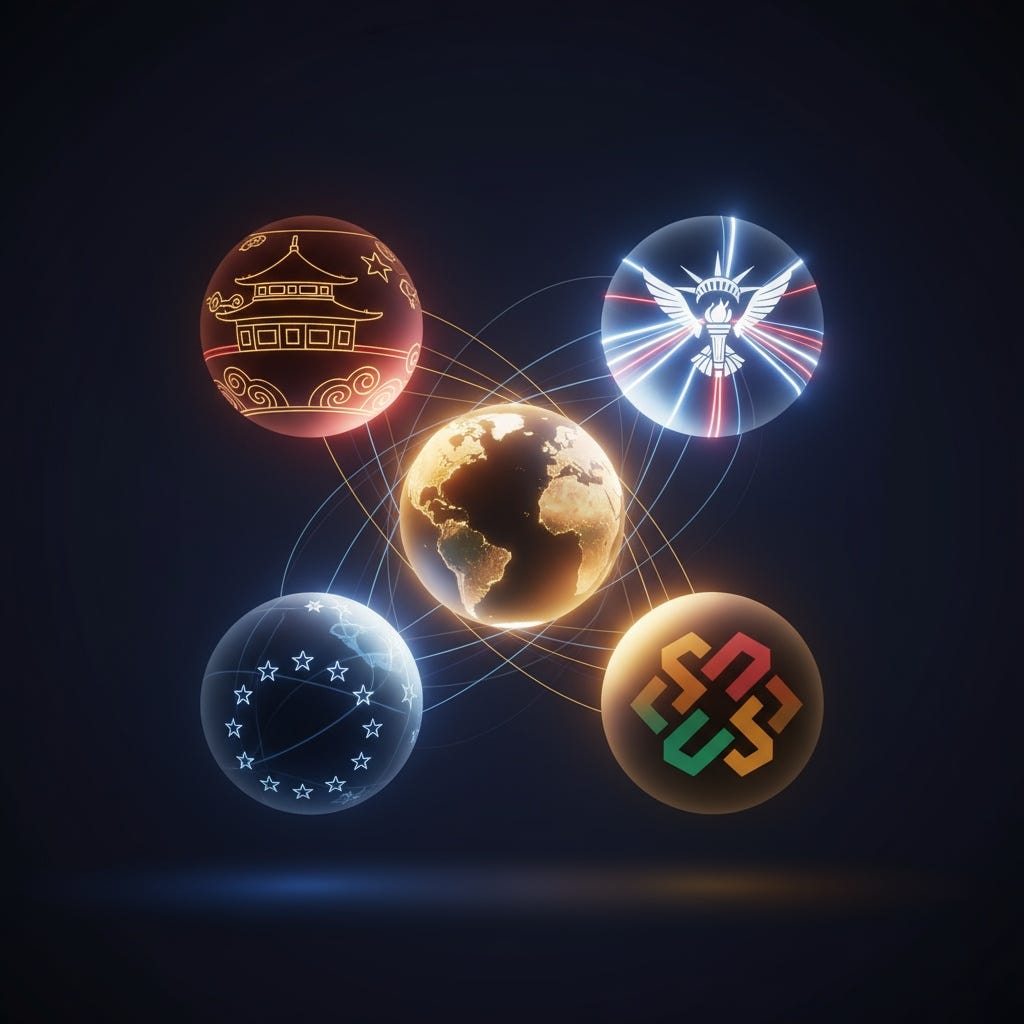Monday Edition — The New New World Order: China, EU, BRICS, USA
Four powers, four choices, one world
For five hundred years, nations have been forced under the control of global powers, under one of two nations that rule or “influence” them. First, Spain and Portugal carved the planet into territories of conquest. Then Britain and France built a global network of colonies and empires. After that came the United States and Soviet Union (later just the U…



